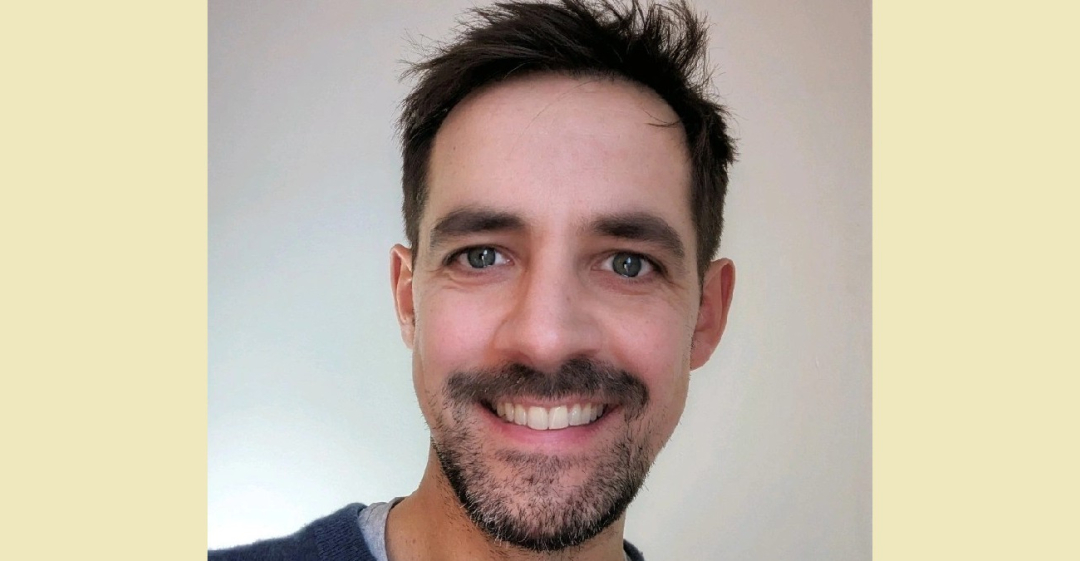“The fear of not going for it became greater than the fear of failure.”

What work were you doing previously?
I worked in Learning & Development in big corporate companies.
What are you doing now?
Running Firetronik with my business partner, John.
We provide fire protection solutions to businesses across London. He covers all things technical on site, and I manage the business; customer relations, operations, finance, HR.
Why did you change?
It feels like a long journey rather than a specific ‘aha’ moment.
I’ve always wanted to run a business, but I was more risk averse in my younger years.
Eventually the fear of not going for it became greater than the fear of failure.
I’d discussed going into business together with John on and off over the years.
He and his partner were living with us during lockdown and one night we decided to go for it.
Are you happy with the change?
Absolutely.
I’m really pleased with how the last two years have played out.
It was a gut-feel decision and I haven’t looked back.
What do you miss and what don't you miss?
I don’t miss having to squeeze on the tube every morning, nor do I miss the office politics of some of the places I’ve worked in the past.
Occasionally, the ability to switch off at the end of the day or at weekends is something I miss.
But for the most part I weirdly enjoy work-related ideas coming into my head and building to-do lists in the middle of the night.
How did you go about making the shift?
I joined the Careershifters High Flyers' programme, which helped in terms of principles around experimentation and not trying to make changes in isolation.
I found real value in having conversations with people to help me figure out what I wanted and what I needed in my career.
I needed to find a partner that had complimentary skills and personalities. The business had been running for a number of years as a one-man band before I joined, which helped as we weren’t starting from scratch.
I saved up some cash to act as a buffer and then handed in my notice at my previous job.
The hours were quite long in the first few months as I was getting up to speed, prior to being able to hire a team.
How did you develop (or transfer) the skills you needed for your new role?
A lot of it was learning on the job (it still is).
It’s pretty much a constant trial and improvement process. Chat GPT has been a very helpful sidekick as well.
I’m also making increased use of sites like Fiverr. I’ve realised that hiring experts to cover some of the tasks that I don’t have the skills or time for is a good way for me to operate.
What didn’t go well? What wrong turns did you take?
I’ve made mistakes but none of them have been irrecoverable.
I drilled through a water pipe when I was helping out on a site a year or so back. A helpful reminder that my rightful place is in the office!
Plenty of experiments with new services, new marketing ideas or operational processes haven’t worked out. But I consider it par for the course and have learned from each of the failures.
How did you handle your finances to make your shift possible?
I’d built up some savings over time to act as a buffer, which helped both in a practical sense, but also the knowledge that I had a cushion helped take some of the pressure away.
That said, this was probably the most stressful part of changing career. There’s a lot to be said about a steady, predictable salary.
With a young child at home and another one on the way, it wasn’t until the third month after switching that I started to think everything was going to be ok.
What was the most difficult thing about changing?
Actually making the decision to shift in the first place was the biggest hurdle.
It’s a big change and that always takes a lot of mental capacity. Once I’d made the mental shift that I was going to change my career, it was relatively straightforward.
It was an adjustment for me and for my family, which required some trial and error to get the balance right.
The hours were quite long in the first few months, but after hiring a small team it has become more manageable.
What help did you get?
Having a supportive family and friends helps when going through changes of any sort.
They’re the constant and I certainly found their support helpful.
What resources would you recommend to others?
The resource of people.
I’d recommend going to networking events, and speaking to those who have made shifts themselves.
Use LinkedIn and other social media to immerse yourself in the topics and areas that interest you. Join conversations on those topics, connect with people. Ideas and opportunities will flow from these interactions.
I’d also recommend generally surrounding yourself with positive people who’ll give you reasons why you should make a shift, rather than reasons why you shouldn’t.
What have you learnt in the process?
I’m more adaptable than I thought, and I think most people are too.
I’ve found that challenging myself, learning new skills and taking risks are all really important to me, and are great motivators.
What do you wish you'd done differently?
I’d possibly have made the change sooner.
Although, as so much of life and business is about timing, it might not have worked out.
I also could have hired a team earlier. It delayed a bit of growth in the business on reflection.
What would you advise others to do in the same situation?
It’s a cliche, but ‘just go for it’.
You don’t want to die with regrets. If you have even the slightest inkling that you want to make a change, you should properly investigate it.
It could be as a side hustle, or a full time switch. It might turn out that a change isn’t the right thing for you, but at least you’ve tried it out.
To find out more about Ashley's business, visit www.firetronik.co.uk
Ashley took part in our High Flyers' programme. If you’re a high performer in your career, feel there’s something missing, and are ready to discover some exciting viable options for ‘what next’, you can find out more here.
What lessons could you take from Ashley's story to use in your own career change? Let us know in the comments below.



